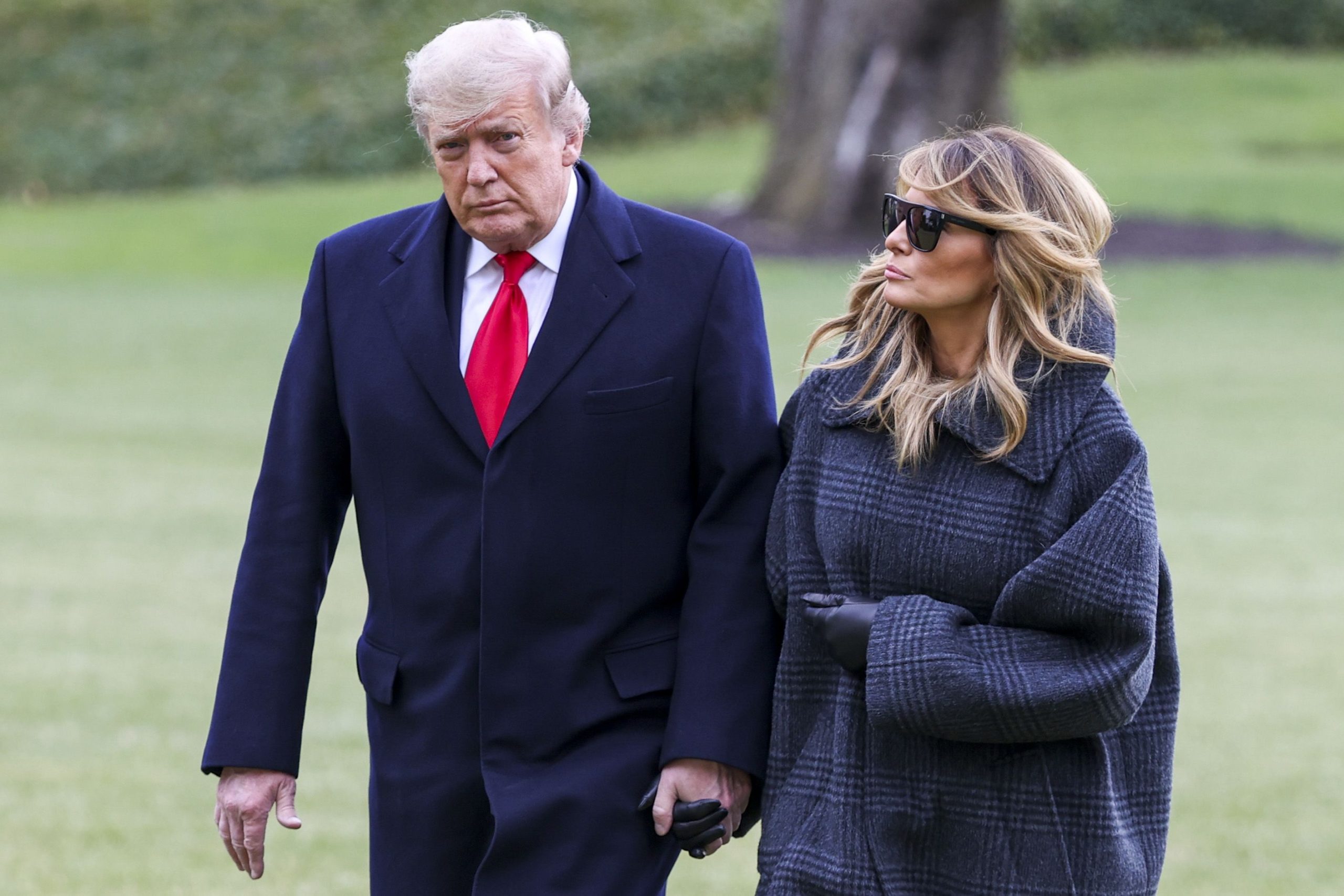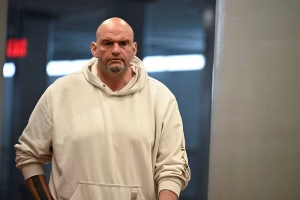On November 13, 2025, a notable moment unfolded at the White House when President Donald Trump took the podium after his wife, First Lady Melania Trump, delivered remarks at a signing ceremony for a new executive order on foster-care reform. What began as a routine policy event quickly turned into a moment of public candor and lighthearted self-reflection, when the president acknowledged with a quip what appeared to be a difference in audience reception between him and his wife. Speaking to the assembled guests, he said: “Every time I get up and make a speech, they say ‘We want our First Lady.’ I say: ‘What the hell, I’m not good enough?’”
The Event: A Focus on Foster-Care Reform
The signing ceremony, held in the East Room of the White House, centred on the “Fostering the Future for American Children and Families” initiative, part of First Lady Melania Trump’s ongoing advocacy for vulnerable children. The executive order aims to address challenges faced by foster youth, particularly those approaching the age where they must leave the system and transition into independent living. With a growing recognition that these young adults are often underprepared for higher education, careers, and housing, the executive order seeks to create more structured support systems.
The First Lady spoke first, outlining the initiative’s goals and highlighting the importance of both empathy and strategic planning. She emphasized that the program is designed to establish a comprehensive network connecting federal agencies, private-sector organizations, charitable institutions, and higher learning institutions. Her remarks focused on the practical measures included in the initiative, which aim to provide foster youth with meaningful access to educational and career resources, alongside grants and vouchers designed to support their transition into adulthood.
Melania Trump described the program as transformative, stating that it “gives me tremendous pride” and emphasizing its dual focus on both compassion and practical outcomes. She pointed out that the executive order reflects a recognition that success in adulthood requires more than temporary aid—it requires a structured pathway that engages multiple stakeholders to create sustainable opportunities.
The First Lady’s Role and Public Reception
The First Lady has taken a particularly active role in this initiative, advocating for increased federal funding to support foster children. She successfully lobbied for a $25 million investment within the federal budget to subsidize housing and provide additional support for youth aging out of foster care. Her involvement highlights the increasingly prominent role that First Ladies can play in shaping social policy, particularly when they take on issues that align with public concern, such as children’s welfare and family support systems.
Melania Trump’s focus on foster-care reform is part of a broader agenda that has characterized her public work in the White House. Beyond domestic policy, she has spoken on international issues affecting children, including expressing public concern about the abduction of Ukrainian children during the Russian invasion and advocating for their safe return. Her advocacy in these areas demonstrates a blend of domestic policy focus and international humanitarian engagement, reinforcing her image as an active and empathetic public figure.
During the event, the First Lady’s remarks were warmly received by the audience, generating applause and positive responses. It was in this context that President Trump delivered his now-famous line acknowledging the audience’s reaction.
President Trump’s Remarks: Humor and Self-Reflection
Taking the podium after Melania, President Trump opened his remarks by paying tribute to his wife. He highlighted her accomplishments, including her linguistic abilities, noting that she speaks at least five languages fluently—a skill he admitted he could not match. The president’s comments were both complimentary and personal, emphasizing not only Melania’s talents but also the admiration and respect she commands.
Then, turning to the audience’s apparent preference for his wife’s speech, he delivered the line: “Every time I get up and make a speech, they say ‘We want our First Lady.’ I say: ‘What the hell, I’m not good enough?’” The remark was delivered in a lighthearted manner, but it carries multiple layers of meaning.
First, it reflects awareness of audience perception, acknowledging that public reception can vary depending on who delivers the message. Second, it demonstrates a moment of playful self-reflection, revealing a human side to the president rarely seen in formal policy events. Finally, it highlights the increasingly prominent role of the First Lady in advocating for specific issues—she was clearly the focal point of the event, and the president’s remarks underscored her centrality in this initiative.
Policy Significance: Fostering the Future
The “Fostering the Future” executive order represents one of the most significant federal initiatives in recent years aimed at improving outcomes for foster youth. Key elements of the initiative include:
-
Establishing an online hub to provide foster children with access to educational and career resources.
-
Creating grant and voucher programs to assist youth in pursuing higher education, vocational training, and independent living arrangements.
-
Building partnerships between federal agencies, private-sector businesses, non-profits, and educational institutions to create pathways for sustainable success.
The initiative is designed to address a critical gap in support for children transitioning out of foster care, a population that faces disproportionately high rates of unemployment, housing instability, and limited access to higher education. By providing structured support and creating new opportunities, the executive order seeks to reduce these risks and improve long-term outcomes for thousands of young Americans.
The Symbolic Role of the First Lady
President Trump’s decision to invite the First Lady to co-sign the executive order was notable. While not a typical practice, the act underscored Melania Trump’s leadership in this initiative and reinforced her role as an advocate for foster children. It also symbolically positioned the First Lady as a partner in governance, not merely a ceremonial figure, highlighting the potential for public figures in the White House to leverage their platform for social impact.
The move reflects a broader trend in which First Ladies, through advocacy and public engagement, become instrumental in shaping policy discourse and public perception. In this case, Melania Trump’s high-profile role and warm reception by the audience accentuated the public’s interest in her work and elevated the visibility of the foster-care reform initiative.
Public and Media Reactions
The president’s line about being “not good enough” quickly drew attention in media coverage. Analysts interpreted the comment as both humorous and revealing of the dynamics of public engagement. While the audience responded positively to the policy announcement itself, the remark highlighted the evolving nature of political communication, where delivery and personality are as impactful as the substance of the message.
Observers noted that the president’s acknowledgment of the audience’s preference for his wife reflects the way in which political figures and their families are perceived collectively and individually. The interplay between humor, self-awareness, and public messaging in this instance offered a rare glimpse into the personal dynamics behind the scenes at the White House.
Looking Forward: Implementation and Impact
While the executive order sets an important policy direction, its ultimate success will depend on effective implementation. Key areas to watch include:
-
Program Reach: Ensuring that the online hub and associated resources reach foster youth across the country, particularly those in rural or underserved areas.
-
Sustainable Support: Measuring the effectiveness of vouchers, grants, and housing subsidies in helping youth achieve independence.
-
Public-Private Collaboration: Assessing the success of partnerships with private-sector organizations and educational institutions in providing meaningful career pathways.
-
Long-Term Outcomes: Evaluating how the initiative impacts educational attainment, employment rates, and housing stability among youth transitioning out of foster care.
By focusing on these areas, the initiative could set a new standard for federal engagement in child welfare, creating a model for other administrations to follow.
Conclusion
The signing of the “Fostering the Future” executive order marked a significant moment both for policy and public perception. President Trump’s seven-word line—“I say: ‘What the hell, I’m not good enough?’”—served as a humorous yet revealing acknowledgment of the audience’s warm reception of the First Lady. Beyond the levity, the event highlighted the evolving role of First Ladies as influential advocates for social initiatives and demonstrated how delivery, personality, and public engagement play crucial roles in shaping public discourse.
For the thousands of foster youth across the United States, the executive order represents an opportunity for enhanced support, education, and pathways to independence. For the broader public, the event offered a moment to witness the interplay of policy, personality, and family dynamics at the highest levels of government. In both respects, November 13, 2025, will be remembered as a day when policy substance met the human side of political leadership—captured in a single, seven-word line that spoke volumes about audience perception, public messaging, and the roles of the nation’s leaders.

Emily Johnson is a critically acclaimed essayist and novelist known for her thought-provoking works centered on feminism, women’s rights, and modern relationships. Born and raised in Portland, Oregon, Emily grew up with a deep love of books, often spending her afternoons at her local library. She went on to study literature and gender studies at UCLA, where she became deeply involved in activism and began publishing essays in campus journals. Her debut essay collection, Voices Unbound, struck a chord with readers nationwide for its fearless exploration of gender dynamics, identity, and the challenges faced by women in contemporary society. Emily later transitioned into fiction, writing novels that balance compelling storytelling with social commentary. Her protagonists are often strong, multidimensional women navigating love, ambition, and the struggles of everyday life, making her a favorite among readers who crave authentic, relatable narratives. Critics praise her ability to merge personal intimacy with universal themes. Off the page, Emily is an advocate for women in publishing, leading workshops that encourage young female writers to embrace their voices. She lives in Seattle with her partner and two rescue cats, where she continues to write, teach, and inspire a new generation of storytellers.









